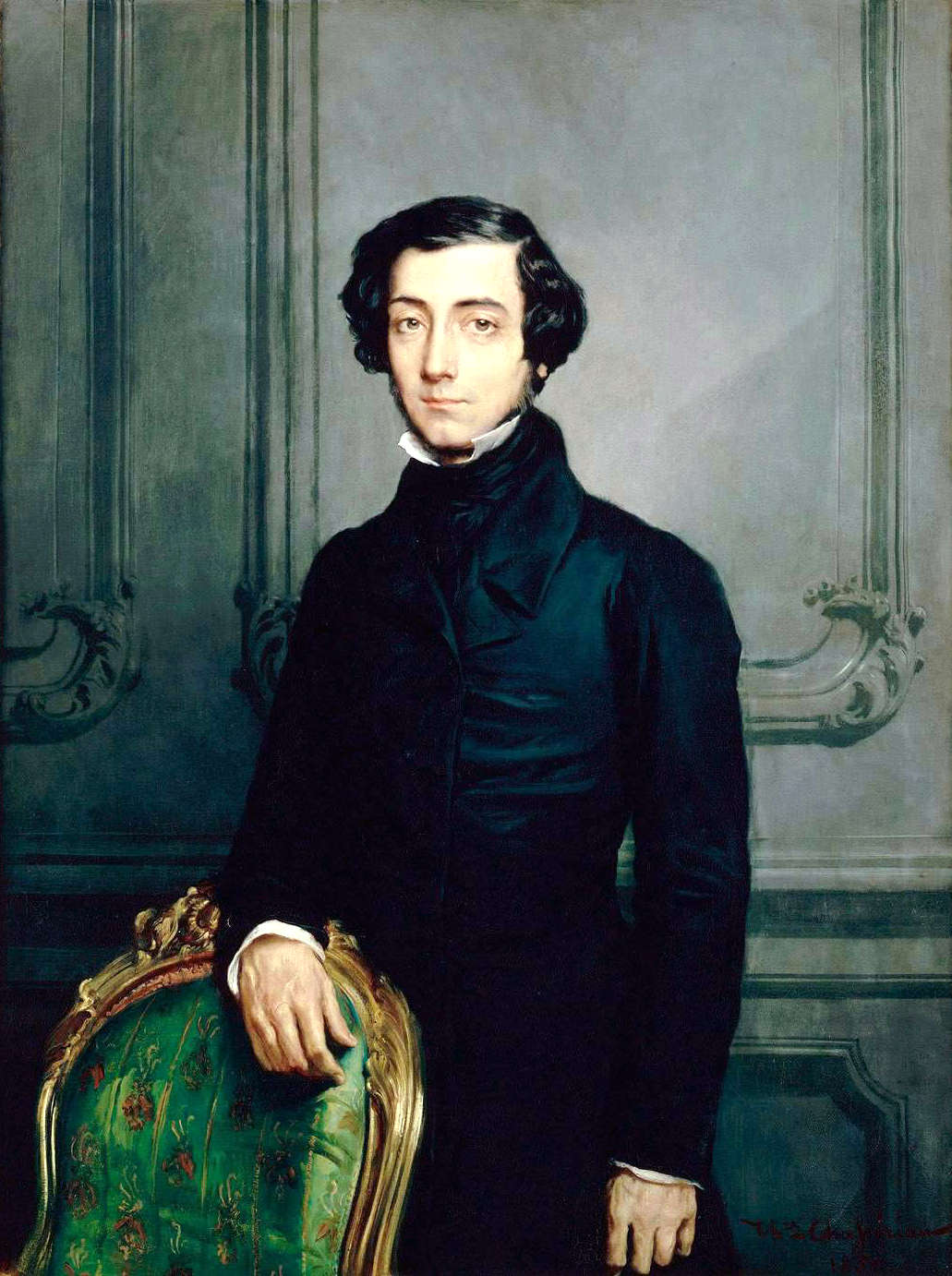In view of the peculiar circumstances of our day, it is opportune to quote a judicious analysis of Joseph Cardinal Ratzinger, Prefect of the Congregation for the Doctrine of the Faith [Nobility.org: and presently, the Sovereign Pontiff, Pope Benedict XVI], in an interview to the newspaper El Mercurio of Santiago, Chile (June 12, 1988):

Pope Benedict XVI and President George W. Bush after the pontiff’s arrival Tuesday, April 15, 2008, at Andrews Air Force Base, Maryland.
“Some 150 years ago, Alexis de Tocqueville pointed out that democracy can continue to exist if it be preceded by a specific ethos. The mechanisms of democracy work only if this is clear and not subject to debate, and only then can such mechanisms be turned into instruments of justice. Majority rule is tolerable only if the majority is not entitled to act exclusively at its own discretion, since both majority and minority must be united in mutual respect for a system of justice that is binding on both. Consequently, there are fundamental elements prior to the existence of the State that are not subject to bargaining between majority and minority and that must be inviolable for all.

Alexis de Tocqueville
“The question is: Who defines these ‘fundamental elements’? And who protects them? As Tocqueville was to remark, this issue did not arise as a constitutional problem in the first American democracy, that of the United States, because there was a certain basic Christian consensus—Protestant—that no one questioned and everyone considered obvious. This principle was nourished by the common conviction of the citizens, a conviction that was beyond debate. But what happens when such convictions no longer exist? Will it be possible to declare, by majority decision, that something considered unjust until yesterday is now right, and vice versa? In the third century, Origen declared in this regard: ‘If injustice should become law in the land of the Scythians, then the Christians living there would be acting in violation of the law.’ This is easily translated to the twentieth century: When the national-socialist government declared injustice to be the law, for the duration of that state of affairs a Christian was forced to violate the law. ‘Obey God, rather than men.’ But how do we incorporate this factor into the concept of democracy?

Soviet propaganda poster. “Study the Great Path of the Party of Lenin and Stalin!”. A relief depicting Lenin and Stalin, along with other Communist leaders, can be seen behind the “inspired” student of the Way of Lenin and Stalin.
“In any event, it is evident that a democratic constitution, in its foundations, must take precautions with regard to the values proceeding from the Christian Faith, declaring them inviolable, precisely in the name of liberty. Such safeguarding of the law will persist of course only if protected by the conviction of a large number of citizens. This is why it is of supreme importance for the preparation and conservation of democracy to preserve and strengthen those basic moral convictions, without which democracy could not survive.”

This is why it is of supreme importance for the preparation and conservation of democracy to preserve and strengthen those basic moral convictions, without which democracy could not survive.
Plinio Corrêa de Oliveira, Nobility and Analogous Traditional Elites in the Allocutions of Pius XII: A Theme Illuminating American Social History (York, Penn.: The American Society for the Defense of Tradition, Family, and Property, 1993), Appendix IV, p. 401.





